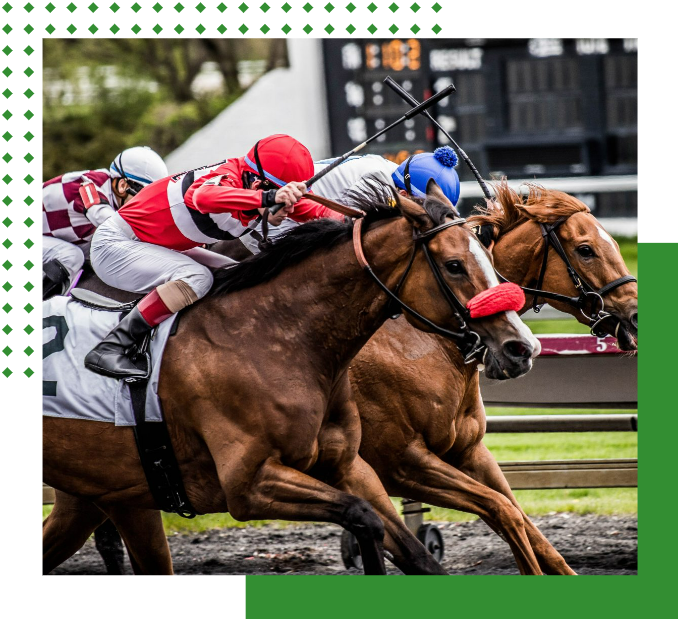SPECIALISED AREAS
Thoroughbreds Accounting
The business of racehorses is unique in many ways, including taxation advice. Carrazzo Consulting is Australia’s leading horse tax adviser and has been providing comprehensive horse accounting services to the thoroughbreds industry for more than 30 years. We offer a range of tailored services, including business plans, tax audit assistance, bookkeeping, and payroll solutions.
The business of racehorses is unique in many ways, including taxation advice. Carrazzo Consulting is Australia’s leading horse tax adviser and has been providing comprehensive horse accounting services to the thoroughbreds industry for more than 30 years. We offer a range of tailored services, including business plans, tax audit assistance, bookkeeping, and payroll solutions.

CARRAZZO CONSULTING
Our Thoroughbreds Tax Consulting Services
WE’RE HERE TO HELP
How Can Carrazzo Assist You
With Your Thoroughbreds Services?
The thoroughbreds industry is complex. That’s why tax matters are just part of what we specialise in. Understanding the intricacies of this world will help you grow your business and live life with less stress. And we’ve been doing it for three decades, so we know exactly how to get you to where you need to go.


THOROUGHBRED
What you need to know
-
If I conduct a legitimate business of thoroughbred breeding and/or racing, can I claim a depreciation deduction for racehorses that I acquired?
Yes, depreciation of a racehorse business plant commences from birth, not age 2, as noted in a previous 1993 ATO ruling.
-
I keep hearing that I need a Business Plan to support the claiming of my tax losses in the early years of my breeding activities. Who says so?
The ATO has made it quite clear in the past five or so years that the preparation of a Business Plan is very important if a taxpayer wants to demonstrate that they are conducting a taxation thoroughbred breeding business.
The requirement for a Business Plan was reinforced when it was referred to as an important business factor in the 1997 ATO ruling, TR 97/11, titled "What is a business of Primary Production."
-
I've heard that there are new rules in relation to taxation breeders being able to claim losses in the year that they are incurred? When do they apply from?
These new rules apply from July 1, 2000. They only apply to individuals and partnerships.
For more information, refer to Jennifer Stynes' interview with Paul Carrazzo, which was published in the November 1999 "Financial Review" article, Tax Crackdown Ready to Fall on Breeders.
-
Can I offset a capital loss on the sale of a broodmare against the capital gain I realised on the sale of one of my rental properties?
No. The real inequity for hobby breeders arises where a capital loss is realised on disposing of a horse - capital losses on horses are not recognised under the current Tax Act. Thus a capital loss on one horse cannot be used to offset a capital gain on another, which differs from the tax laws relating to normal capital assets.
-
I own a share in a racehorse. Do I pay CGT if I sell it for profit?
If the share in the horse was acquired for $10,000 or less, and it was disposed of on or after 1 July 1998, it is exempt from CGT on disposal.
-
I have a legitimate taxation thoroughbred breeding business and want to know more about the mare and stallion write down provisions. Can you help?
If a breeder uses the Special Closing Value method for valuing closing stock, broodmares can be written down on a straight-line basis until they are $1 by the age of 12 years. Mares acquired at the age of 12 years; Mares acquired or more excellent can be written down to $1 in the year of purchase.
Stallions (or shares therein) can be written off by up to 25% per annum.
Get in Contact
ABOUT US
Carrazzo Consulting provides high-quality accounting and tax advisory services. Our clients are typically successful, ambitious, and time-poor. They value our smart, practical advice, and trust us to safeguard their interests and assets.
DISCLAIMER: The information contained herein is intended to afford general guidelines on matters of interest. Accordingly, the information on this site is not intended to serve as legal, accounting, or tax advice. Carrazzo Consulting disclaims all warranties with regard to this information, including all implied warranties of merchantability and fitness for a particular purpose. In no event shall Carrazzo Consulting be liable for any special, indirect, or consequential damages or any damages whatsoever resulting from loss of use, data, or profits, whether in an action of contract, negligence, or other tortuous action, arising out of or in connection with the use or performance of this information.
